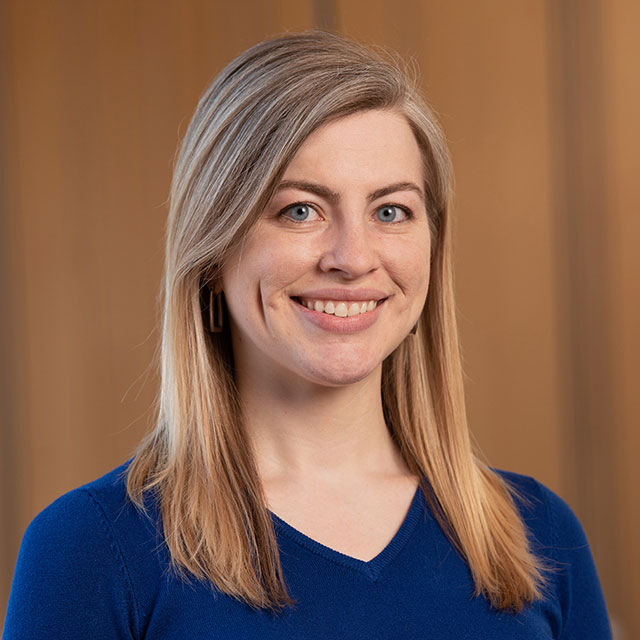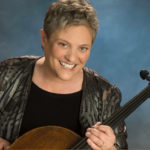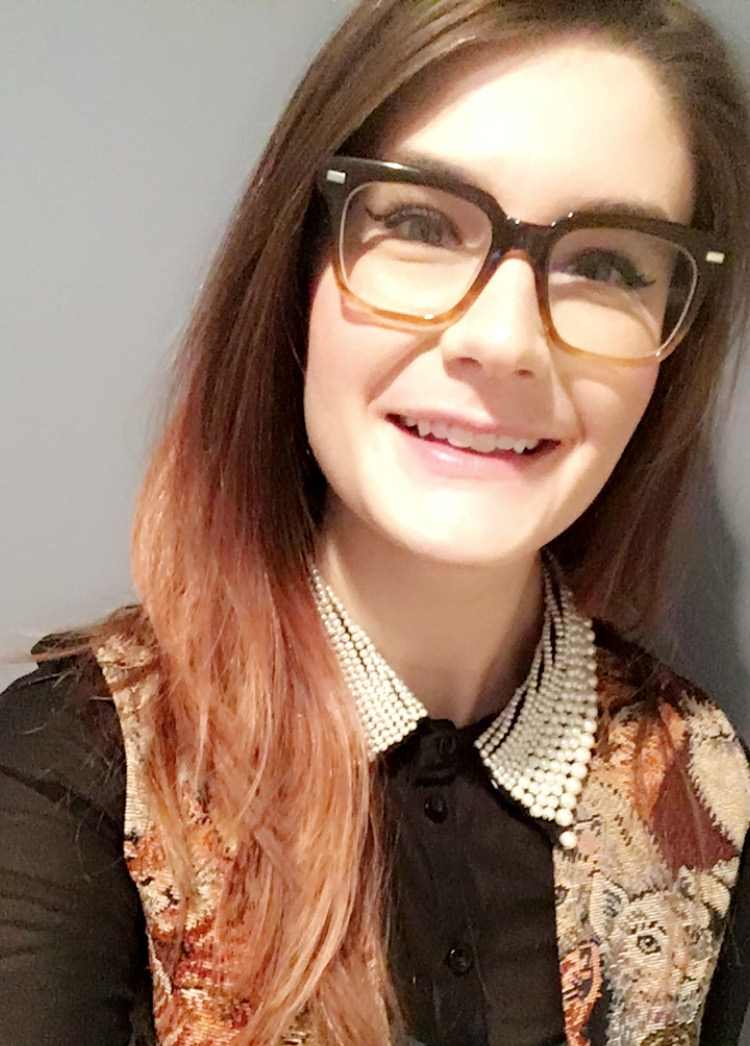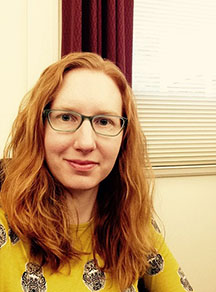Message from the Chair
Spring 2020 Meeting Summary
NEMLA Town Hall on Racial Justice
Fall 2020 Meeting Preview
NEMLA Officers
Publication Information
Message from the Chair
Greetings, NEMLA members.
I am struggling to begin this message without some version of the now cliché “in these unusual and challenging times…” But indeed, the past few months have brought changes and challenges to almost every aspect of our personal and professional lives. I sincerely hope this message finds all of you safe and well. NEMLA has faced and continues to face our own set of unique challenges, and the Board and NEMLA committees have adapted and acted to keep us moving forward. We converted our spring meeting to a virtual format, and successfully hosted that meeting with attendees from across the United States and Canada, plus Serbia and Qatar! We have also adjusted our membership dues for the 2021 fiscal year, so that members facing financial hardship have the option to join or renew at the student/retiree rate.
The Board’s primary focus now is NEMLA’s response to racial violence and oppression. Thank you to those of you who attended and participated in our June 26 Town Hall meeting or submitted ideas via our Google form. The Board has taken these ideas under consideration in how we will move forward. Our statement and initial action steps follow here and will be posted on the NEMLA website.
The New England chapter of the Music Library Association stands in solidarity with our members and members of the communities we serve who are Black, Indigenous, and People of Color (BIPOC). We wholeheartedly condemn acts of racial violence, murder, oppression, and injustice that too frequently target BIPOC in our society.
We recognize that NEMLA is a part of the systems that have historically excluded, marginalized, and held back BIPOC in libraries, music, education, and society as a whole. There is much work to be done by individuals, institutions, and organizations to break down systemically racist and inequitable practices. We are committed to actively taking part in this work, to move towards a society that is truly diverse, inclusive, equitable, and just for all people.
Therefore, the NEMLA Board has agreed to the following immediate action items:
- Adopt a theme of diversity and anti-racism for the Fall 2020 and Spring 2021 NEMLA meetings.
- Establish a new NEMLA Diversity Committee to address issues of systemic racism, diversity, equity, and inclusion. The membership and charge for this committee will be determined after collecting input from New England music library workers.
As the second action item notes, we have not yet decided on the membership or official charge for the new Diversity Committee. The Board was not comfortable making these decisions in our small, exclusive, and notably un-diverse group. We wish to collect input from diverse voices to inform our decisions and make this process more transparent and inclusive for the people we serve and represent. Therefore, we have created a short survey to gather input on the new committee. I encourage everyone to complete the survey, and to do so with honesty and careful thought. The deadline for survey completion is September 25, 2020. We plan to assemble the results in the following weeks and share them during our Fall 2020 meeting.
Access the survey here: https://forms.gle/gSigLGDpXVbLyQ5s9
The work of removing systemic racism from our organization and our society is time-consuming, challenging, and uncomfortable. But the rewards of building new, anti-racist systems are great, and the costs of standing still are even greater. I have seen NEMLA and its members accomplish many things, and I trust that together we can make progress. I look forward to undertaking this work with all of you.
Lisa Wollenberg, NEMLA Chair
Spring 2020 Meeting Summary
Marci Cohen, Boston University, adapted from the CAML Review
NEMLA had just opened registration for its spring meeting, scheduled for April 17, when COVID-19 caused widespread shutdowns. Rather than cancelling the event, the board decided quickly to make the meeting an online event, recognizing the opportunity to showcase program chair Lisa Wollenberg’s fruitful work to a wider audience than those who might have traveled to the Boston Symphony Orchestra’s Symphony Hall under normal circumstances. While not the first event to pivot this way, it was among the earlier ones.
At the peak, the event had approximately 130 participants, twice the usual attendance of our Boston meetings. Normally, the chapter would announce its meetings to the broader Music Library Association community primarily as a courtesy; this time we did so knowing we could attract the far-flung. The attendees included not only current NEMLA members but also former members who had left New England, our music library colleagues across the US and Canada, and even one logging in from Serbia and another from Qatar.
The event required preparation because most were new to Zoom in March and April. I hosted and provided tech support for the Zoom meeting in my final act as past chair. I offered to do practice runs with all presenters, confirming that they could connect to Zoom, and reminded them to have a phone and phone number handy as audio back-up. With one presenter, we learned together how to share computer audio. I did a sound check with different microphones for the concert performers. I chose licensed music to stream during the meeting down times so that attendees would know their audio was working. After studying Zoom’s best practices documentation, I recruited two coworkers as cohosts to handle tech questions from attendees and tamp down on potential Zoom bombing, but both tasks proved unnecessary.
Although we could not meet at the BSO, Tony Fogg, William I. Bernell Artistic Administrator and Director of Tanglewood, provided opening greetings as the BSO’s representative. Next was a panel discussion on library management, “I Have an MLS, Not an MBA!” Nina Davis-Millis, Massachusetts Institute of Technology; Paul Engle, Brockton Public Library; Ruthann McTyre, Yale University; and Holly Mockovak, Boston University, each presented opening thoughts before taking questions from the audience.
Conveniently, the business meeting did not require any votes from the membership. Officers and committee chairs delivered their reports. Outgoing chair Sarah Funke Donovan could only metaphorically pass the gavel to incoming chair Lisa Wollenberg.
The afternoon started with two shorter presentations. New England Conservatory’s Leonard Martin combined his insight as a cataloger with his knowledge of chopped and screwed, vaporwave, and ambient musics to discuss these subgenres and cataloging issues in dealing with musical subgenres. Aaron Bittel and Jennifer Thom Hadley shared their success stories and lessons learned in hosting public events in Wesleyan University’s music library. In lieu of a physical tour, Bridget Carr, Director of Archives and Digital Collections, gave a slideshow overview of the BSO archives.
Setting up a webinar would have required institutional approval, but the ability to immediately schedule a Zoom meeting for up to 300 participants also had the unexpected benefit of allowing full interaction among attendees. With microphones and chat open for informal discussion, we replicated the opening and closing receptions of our in-person meetings, announcing them as BYO bagel and bottle. We took greatest advantage of this for an open session on COVID-19 work, which filled a scheduling gap left by a presentation that could not be shifted online. Members of the program committee moderated the discussion, with participants unmuting to talk and others having a lively chat thread where people shared questions, ideas, and resources. Topics included identifying tasks to keep employees productive from home and lessons learned in the switch to teaching information literacy in an online environment.
We held onto our traditional end-of-meeting concert. Father and daughter Joel and Lily Moerschel performed Duo V from 6 Duos for 2 Cellos, op. 156, by Friedrich August Kummer. The best microphone they had available was less than ideal, so the sound was sometimes glitchy, but it was quite moving that we could all still enjoy live music together, even remotely.
By May it was commonplace for live events of all kinds to switch to remote presentation. But in April, as everything was first shutting down, it was uplifting to pull off the meeting and engage so many of our colleagues in meaningful ways.
NEMLA Town Hall on Racial Justice
Notes submitted by Sarah Funke Donovan
The NEMLA Board hosted a virtual Town Hall meeting for the NEMLA community on Friday, June 26, 2020. The purpose of this meeting was to solicit ideas for action items that our particular community can take in the work against systemic racism. The board has drafted an anti-racism statement and seeks to include specific steps that will effect positive change within our profession and the communities we serve.
Ideas presented at the meeting included the following:
- Changing recruitment strategies, such as visiting high schools.
- Changing organizational culture, such as individual staff taking responsibility to learn/educate themselves on microaggressions, apologize for mistakes, correct ignorance, and approach conversations with an attitude of humility.
- Expanding our understanding of the following:
- Modes of teaching
- Curriculum
- Cataloging language
- Highlighted collections
- Purchasing decisions
- Acceptable formats for purchasing and preservation
- Developing an anonymous survey to gather stories on racial experiences within the NEMLA community.
- Creating library messaging, website design and programming that is welcoming rather than intimidating.
- Developing a personal plan for individual members to work towards addressing anti-Black racism.
- Recognizing the systems of which they are a part
- Developing a NEMLA plan from individual plans
- Setting aside space and time at meetings to discuss advocacy and action.
- Including topical presentations and/or outside speaker trainings at meetings.
- Providing structure and support for members to advocate within their institutions.
- Providing opportunities for education on problematic pieces of music
Resources Mentioned during the Town Hall
- Mindful of Race by Ruth King
- Harvard Implicit Bias tests: https://implicit.harvard.edu/implicit/takeatest.html
- Equity Walkthroughs
- Change the Subject documentary by Jill Baron
Fall 2020 Meeting Preview
The NEMLA Program Committee has specifically designated the meetings this year to Diversity, Equity, Inclusion and Anti-Racism in Music Libraries and our Collections.
At this time, we are seeking proposals for our fall virtual meeting, scheduled to take place online on Friday, October 23, 2020. This one-day conference is an opportunity for New England-based music librarians and library staff to discuss topics related to all aspects of music librarianship and music scholarship.
The Program Committee is especially interested in proposals – either full length (40 min.) or lightning rounds (10-15 min.) – related to the following topics:
- Diversity (or the lack thereof) in music librarianship, including topics relating to inclusive descriptive practices, description of world music, collection building, outreach, etc.
- Protest music, including protest/parody music (e.g. Randy Rainbow, Tom Lehrer, Bob Marley, Childish Gambino)
- Art music by composers from diverse, non-majority groups
- Popular musics such as blues, jazz, reggae, hip hop, etc.
- Suggestions and best practices for providing remote services to patrons
Proposals for topics not on this list will also be happily considered.
If you would enjoy speaking on one of these topics, or have another topic in mind, please submit your proposal to smalmon@fas.harvard.edu by Friday, August 21, 2020.
For more information, please contact Sandi-Jo Malmon at smalmon@fas.harvard.edu or via phone at (617)-823-3270.
Program committee members:
Sandi-Jo Malmon (chair)
Rebecca McCallum
Jared Rex
Terry Simpkins
NEMLA Officers
Publication Information
New England Quarter Notes is published quarterly in September, December, March/April and June/July.
Back issues may be accessed from:
http://nemla.musiclibraryassoc.org/resources/newsletters/
Address all correspondence concerning editorial matters to:
Memory Apata
memory.r.apata@dartmouth.edu
Inquiries concerning subscription, membership and change of address should be directed to:
Brendan Higgins
bhiggins@berklee.edu
Membership year runs July 1st to June 30th.
Regular Personal Membership:$12.00
Student and Retired Membership:$6.00
Institutional Membership$16.00
Return to the New England Music Library Association home page.







